About Boca Recovery Center – Pompano
Boca Recovery Center in Pompano Beach, Florida is located just 10 miles north of Fort Lauderdale. We provide comprehensive rehabilitation services ranging from medical detoxification and residential treatment to specialized programs that meet your unique needs.
Your treatment is tailored to help you achieve long-term sobriety and sustainable recovery. Our programs are inclusive and culturally sensitive. We meet the needs of a wide range of individuals including veterans, executives, first responders, the LGBTQ+ community and clients of any gender.
Once you’ve completed detoxification and residential treatment then you can transition to an intensive outpatient program that helps ensure a seamless passage throughout your recovery journey. Our center is the premiere addiction rehab program in Pompano Beach. We are proud to serve the people of Broward County and the many clients who choose to travel to our location.
Your customized program will be based on a comprehensive evaluation and typically includes evidence based treatments like cognitive behavioral therapy, medication-assisted treatment, individual therapy and group therapy. Our goal is to help you identify the underlying issues that have led to addiction and teach you healthier coping strategies.
We recognize that each person is unique and your treatment program must be customized to your individual needs. That’s why we offer several specialized programs including faith-based rehab services and family therapy.
Pompano Beach is known for its beautiful beaches and recreational activities. Residents and visitors can enjoy year round water sports like boating, fishing and snorkeling. The revitalized Pompano Beach Pier offers dining, shopping and panoramic views of the Atlantic Ocean. The area is home to numerous parks, natural preserves, golf courses and plenty of outdoor activities. Pompano Beach is an outstanding area to achieve your goals and enjoy a fresh start.
Here, you’ll receive the tools and direction needed to change and restore your life. We address your legal, medical, clinical and social needs. Your treatment team will include medical and clinical professionals with extensive training, some of whom have years of personal experience in sobriety.
Our center is in the top 10% of U.S. rehab centers and we have successfully treated more than 5,000 people. You’ll be surrounded by caring professionals who help you from your first phone call through your aftercare program.
It’s our goal to make your treatment as accessible as possible so you can restore your personal and professional life. We’ll verify your insurance coverage before beginning treatment and can offer a flexible payment plan if your policy doesn’t cover the total cost. Our financial counselors work with you to find financial assistance if you don’t have insurance or can’t afford rehab.
Rehab Score
Gallery
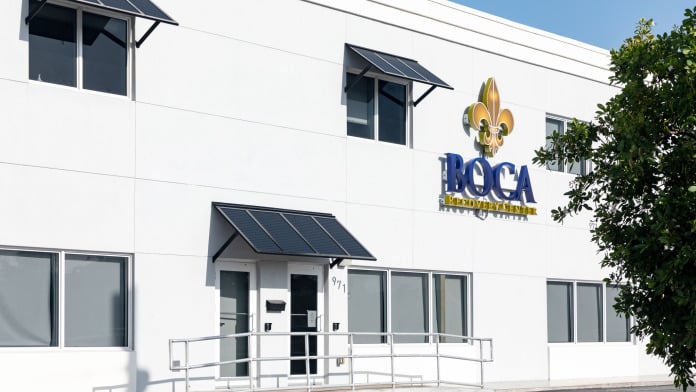
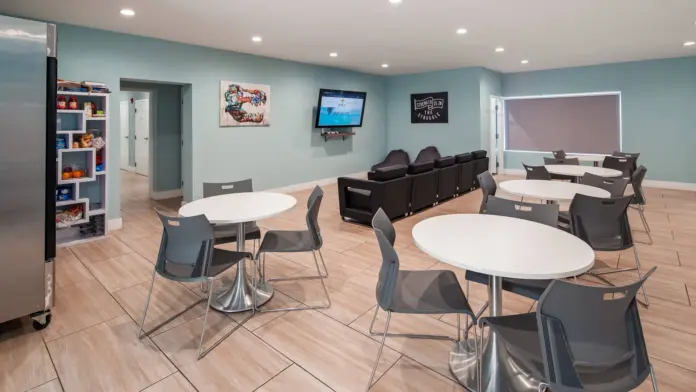
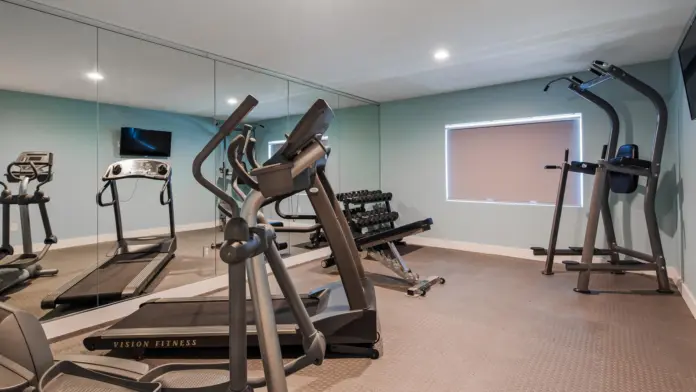
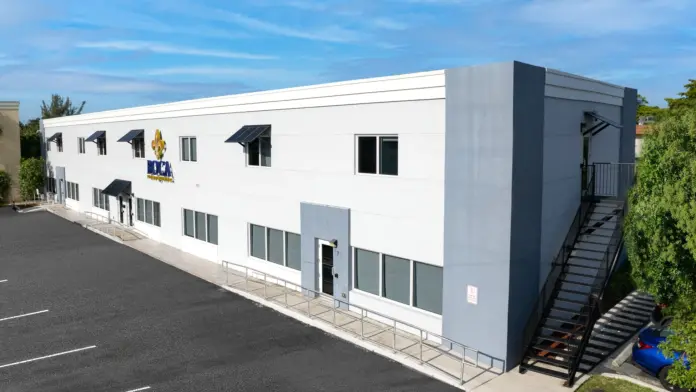
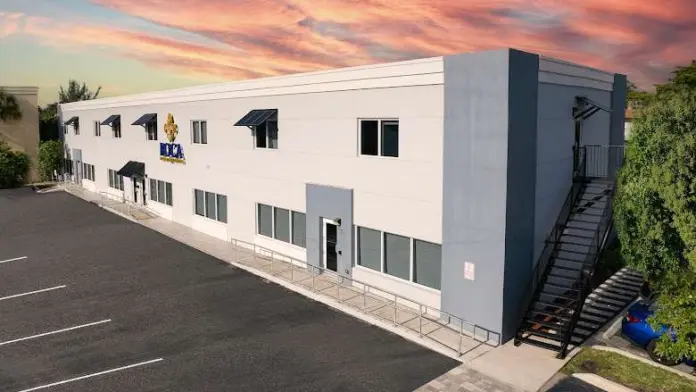

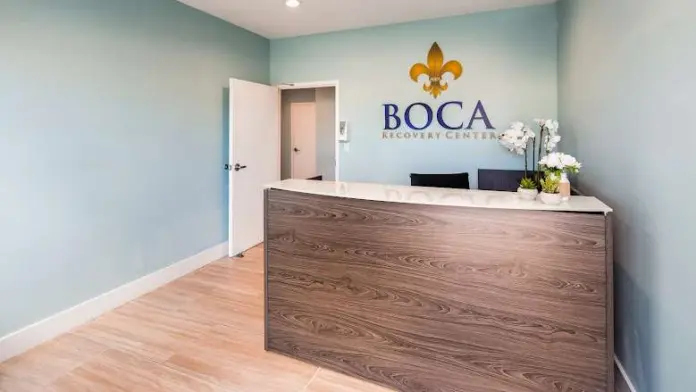
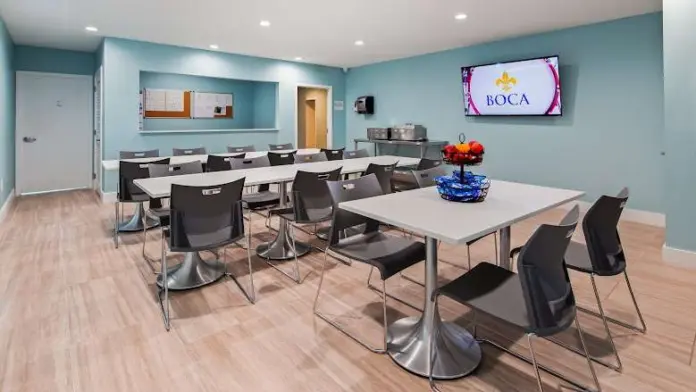
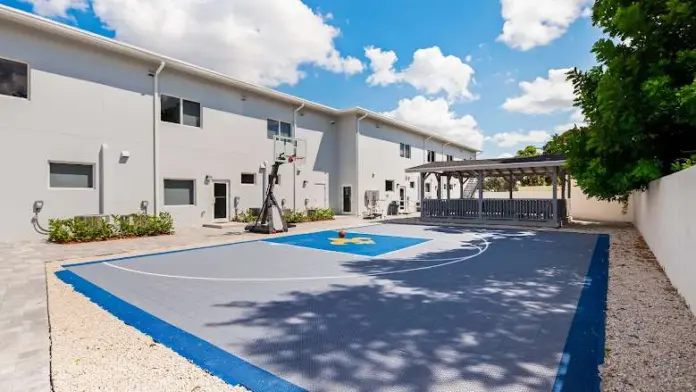
Location
Accepted Insurance









Other Forms of Payment
Private insurance refers to any kind of healthcare coverage that isn't from the state or federal government. This includes individual and family plans offered by an employer or purchased from the Insurance Marketplace. Every plan will have different requirements and out of pocket costs so be sure to get the full details before you start treatment.
Self-pay involves paying for treatment out of your own pocket. You can use savings or credit, get a personal loan, or receive help from family and friends to fund your treatment. If you don't have insurance or your insurance plan doesn't cover a specific program, self-pay can help ensure you still get the care you need.
Military members, veterans, and eligible dependents have access to specific insurance programs that help them get the care they need. TRICARE and VA insurance can help you access low cost or no cost addiction and mental health treatment. Programs that accept military insurance often have targeted treatment focused on the unique challenges military members, veterans, and their families face.
Addiction Treatments
Levels of Care
Treatments
Our alcohol addiction treatment programs typically start with medical detoxification to help your body safely withdraw from alcohol, eliminate toxins and reduce symptoms. Your program then moves into behavioral therapies and support groups designed to help you understand what triggers your addictive behavior. You’ll learn healthier coping strategies and build a supportive network to maintain your sobriety.
At Boca Recovery Center, our drug addiction treatment programs include comprehensive therapeutic interventions such as behavioral therapy, counseling and medication management. Our abstinence-based programs begin by addressing the root factors that contribute to addiction and promote strategies to help you achieve sustainable recovery.
You may have been using drugs or alcohol to self-medicate and relieve mental health symptoms such as depression or anxiety. Dual diagnosis is the term to describe an addiction and mental health condition that happen at the same time. A dual-diagnosis approach treats both conditions simultaneously which enhances recovery outcomes and improves your quality of life.
The programs at Boca Recovery Center that focus on mental health and addiction will address both your psychiatric and physical needs. This is effective because mental health conditions often exacerbate addiction and vice versa. Your program may include therapy, medication management and a customized treatment plan that treats your entire being - mentally, emotionally, physically and spiritually.
Our opioid use disorder treatment typically has three stages. The first is medical detoxification using FDA-approved medications to reduce withdrawal symptoms and monitor your health. The next step is behavioral health treatment that may occur alongside or after detox. After acute rehab, you’ll connect with an aftercare recovery community that includes support groups, individual therapy and holistic treatments.
Programs


Clinical Services
Cognitive Behavioral Therapy (CBT) is a therapy modality that focuses on the relationship between one's thoughts, feelings, and behaviors. It is used to establish and allow for healthy responses to thoughts and feelings (instead of unhealthy responses, like using drugs or alcohol). CBT has been proven effective for recovering addicts of all kinds, and is used to strengthen a patient's own self-awareness and ability to self-regulate. CBT allows individuals to monitor their own emotional state, become more adept at communicating with others, and manage stress without needing to engage in substance abuse.
Dialectical Behavior Therapy (DBT) is a modified form of Cognitive Behavioral Therapy (CBT), a treatment designed to help people understand and ultimately affect the relationship between their thoughts, feelings, and behaviors. DBT is often used for individuals who struggle with self-harm behaviors, such as self-mutilation (cutting) and suicidal thoughts, urges, or attempts. It has been proven clinically effective for those who struggle with out-of-control emotions and mental health illnesses like Borderline Personality Disorder.
Group therapy is any therapeutic work that happens in a group (not one-on-one). There are a number of different group therapy modalities, including support groups, experiential therapy, psycho-education, and more. Group therapy involves treatment as well as processing interaction between group members.
In individual therapy, a patient meets one-on-one with a trained psychologist or counselor. Therapy is a pivotal part of effective substance abuse treatment, as it often covers root causes of addiction, including challenges faced by the patient in their social, family, and work/school life.
Motivational Interviewing (MI) is a clinical approach to helping people with substance abuse issues and other conditions shift behavior in positive ways. It is more goal-oriented than traditional psychotherapy, as MI counselors directly attempt to get clients to consider making behavioral change (rather than wait for them to come to conclusions themselves). Its primary purpose is to resolve ambivalence and help clients become able to make healthy choices freely.
Trauma therapy addresses traumatic incidents from a client's past that are likely affecting their present-day experience. Trauma is often one of the primary triggers and potential causes of addiction, and can stem from child sexual abuse, domestic violence, having a parent with a mental illness, losing one or both parents at a young age, teenage or adult sexual assault, or any number of other factors. The purpose of trauma therapy is to allow a patient to process trauma and move through and past it, with the help of trained and compassionate mental health professionals.
Whether a marriage or other committed relationship, an intimate partnership is one of the most important aspects of a person's life. Drug and alcohol addiction affects both members of a couple in deep and meaningful ways, as does rehab and recovery. Couples therapy and other couples-focused treatment programs are significant parts of exploring triggers of addiction, as well as learning how to build healthy patterns to support ongoing sobriety.
Research clearly demonstrates that recovery is far more successful and sustainable when loved ones like family members participate in rehab and substance abuse treatment. Genetic factors may be at play when it comes to drug and alcohol addiction, as well as mental health issues. Family dynamics often play a critical role in addiction triggers, and if properly educated, family members can be a strong source of support when it comes to rehabilitation.
Life skills trainings involve all the skills a person must have in order to function successfully in the world. These include time management, career guidance, money management, and effective communication. Truly successful addiction recovery is based on the ability to not only live substance-free, but to thrive. Life skills teaches the practical necessities of functioning in society, which sets clients up for success in life, and therefore sobriety.
One benefit of nicotine replacement therapy (NRT) in Florida is variety. NRT comes in multiple forms that you can use in different ways. This allows you to choose the form that works best with your needs and lifestyle. Your options include gum, patches, inhalers, and prescription medication.
Amenities
-
Residential Setting
-
Private Rooms
-
Gym
-
Yoga Studio
Accreditations

LegitScript has reviewed Boca Recovery Center – Pompano as part of their certification program, and has determined that it meets the LegitScript standards for legality, safety and transparency.
LegitScript verified in July 2020

State Licenses are permits issued by government agencies that allow rehab organizations to conduct business legally within a certain geographical area. Typically, the kind of program a rehab facility offers, along with its physical location, determines which licenses are required to operate legally.
State License: Florida

The Joint Commission, formerly known as JCAHO, is a nonprofit organization that accredits rehab organizations and programs. Founded in 1951, the Joint Commision's mission is to improve the quality of patient care and demonstrating the quality of patient care.
Joint Commission Accreditation: Yes
